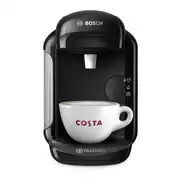 OK 3rd problem class one appliance with no exposed metal work to connect test lead too how can I carry out the earth bond test given it is a class 1 appliance and not a class 2 appliance like this
OK 3rd problem class one appliance with no exposed metal work to connect test lead too how can I carry out the earth bond test given it is a class 1 appliance and not a class 2 appliance like this 
 OK 3rd problem class one appliance with no exposed metal work to connect test lead too how can I carry out the earth bond test given it is a class 1 appliance and not a class 2 appliance like this
OK 3rd problem class one appliance with no exposed metal work to connect test lead too how can I carry out the earth bond test given it is a class 1 appliance and not a class 2 appliance like this 

gkenyon:
I wouldn't make the assumption that all fixed appliances are tested as part of the electrical installation.
I would hope at least earth continuity to the element in a shower, but I've definitely come across electricians who only test to wiring termination points, because that's where BS 7671 stops (the Wiring Regs apply to electrical equipment and assemblies only as far as their selection goes ... not their inspection and testing).
Also, the IET Code of Practice covers appliances and equipment that is directly wired too - that's why it's called IET Code of Practice for In-Service Inspection and Test of Electrical Equipment and not IET Code of Practice for Portable Appliance Testing.
This is confirmed in the preface to the 5th Edition of the IET CoP, which has the following statement (my underline):Another principal clarification is the demarcation between equipment connected to a fixed electrical installation and the installation itself. Generally, fixed-wiring electrical inspections will verify the installation as far as the connection point for equipment. This can leave many items of permanently installed electrical equipment (such as hand-dryers) failing to be checked, as they neither come under a company's ‘portable appliance testing’ (PAT) regime (because they are not portable appliances), nor under the fixed wiring inspection and testing programme.
Thanks for the reply and yes I understand that some fixed appliances need to fall under pat testing but for me as not a qualified spark some kind of inspections are outside of my responsibility and remit therefore would have to be inspected by a more qualified person
Alex13:OK 3rd problem class one appliance with no exposed metal work to connect test lead too how can I carry out the earth bond test given it is a class 1 appliance and not a class 2 appliance like this
I have one in my kitchen, next to the "cordless kettle" I'll have a poke later.
More interestingly I have identical downlights in my ceiling, some are Class I with an earth and some are class II, when I enquired why the manufacturer told me that they make them up to customers specifications, so the Class depends on what the customer asked for; they could all be Class II, but some customers prefer to see them earthed, so they add an earth fly lead and terminal if requested and I had ended up with a mixed batch.

Alex13:Sparkingchip:
Class I with a three core 0.75 mm flex, but definitely an all insulated plastic enclosure without any gaps.Thanks so for all purposes fails the earth bond test as un testable
Nope ... I disagree. "I can't" doesn't mean "It's no good".
As I said earlier, to fail an appliance that has its exposed-conductive-parts shrouded to prevent a burn hazard is absolute nonsense. There are good reasons why many heating elements MUST be Class I, and that's to do with preventing overload and fire as much as electric shock ... and not impeding heat transfer at the same time.
So, what's the answer ... well, again I said this earlier - this type of appliance has a plastic shroud over its exposed-conductive-parts, and someone who is competent to service and check that appliance will remove the cover and perform the test the way the manufacturer intended.
The filter coffee machine I have at home has a similar issue - the only way to get to the element to perform the earth continuity test is to remove the bottom cover, which has tamper-proof screws. The heat plate is teflon and I can't get an earth probe to get a circuit from outside the appliance.
Get it tested by someone who knows about that type of appliance.
gkenyon:
Get it tested by someone who knows about that type of appliance.
Just a note of caution too ... relates to ALL appliance testing, as well as that for charity shops.
Many appliances contain safety measures other than electrical, such as mechanical (including rotating parts, abrasion, shearing, etc), radiation, fire/heat safety, etc.
"Go/No-Go" electrical tests alone are unsuitable for determining the fitness for sale, or "safe to use".
Sometimes, particular knowledge of an appliance, and particularly hazards covered in the user and installation instructions, is absolutely necessary.
The legislation for workplaces, requires suitable maintenance to ensure safety - not just electrical.
Appliances that are serviced regularly for mechanical reasons should be checked for electrical safety by the service organisation (HSE guidance recommends this for the safety of the person carrying out mechanical maintenance and servicing).
We're about to take you to the IET registration website. Don't worry though, you'll be sent straight back to the community after completing the registration.
Continue to the IET registration site